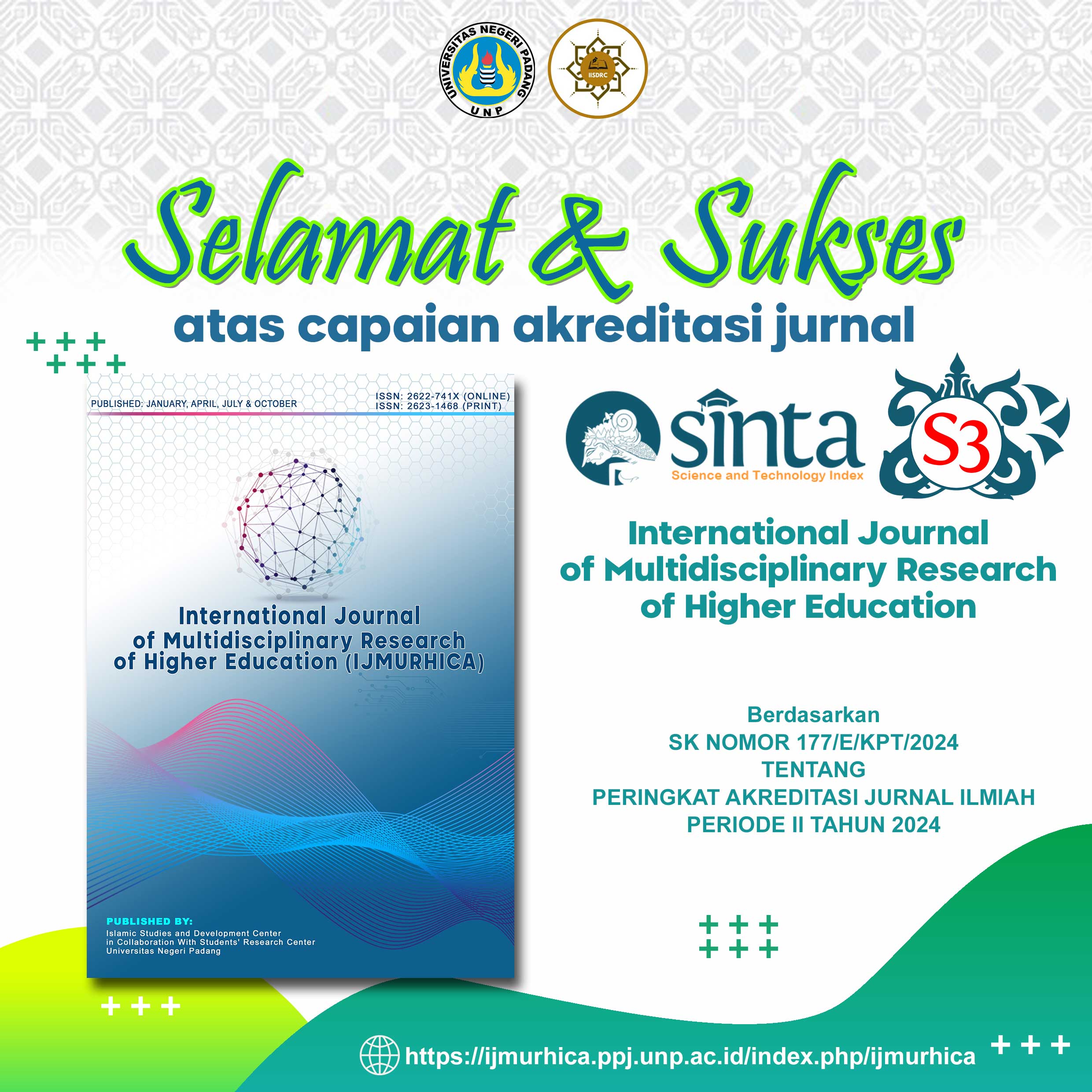Negative Impact of Playing Habits Game Online Concerning Adolescent Morals and Solutions: A Phenomenological Study
DOI:
https://doi.org/10.24036/ijmurhica.v3i3.188Keywords:
Impacts, teenage habits, online games, moralityAbstract
As the popularity of online gaming increases, stories of young people falling into obsessive cyberspace, experiencing moral decay, or even engaging in aggressive behavior are becoming more common. This research aims to find out the impact of online gaming habits on changes in the morals of teenagers according to parents, and what the solution is to this problem. This research uses a qualitative method with a phenomenological approach, data sources were taken using a set of interview protocols with ten informants consisting of five parents and five children, and the informants were selected using the purposive sampling technique. All interview results were then analyzed using the Milles and Huberman analysis technique. Overall, the research findings found five negative impacts of the habit of playing online games on adolescent morals, namely i) lying, ii) tending to be lazy, iii) being disobedient to parents, iv) selfish and v) being temperamental. The solutions that parents can take regarding this problem are i) controlling time for playing online games, ii) being firm in limiting time, iii) supervising teenagers, iv) spending time together. The results of this research can be used as initial data for future researchers in studying this problem in different contexts and issues.






